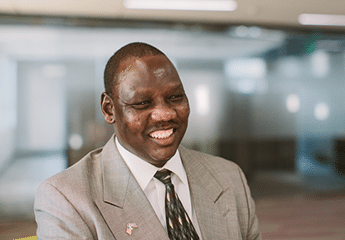I have a goal in my ministry life: to be effective until the day God calls me home.
If only I had a plan.
Lately, I have been giving a lot of thought into nutrition and exercise as part of an ongoing effort to strengthen my body and improve the capabilities of my mind. What I’ve learned is that the mind diminishes in its overall functionality as we age. The mind loses its ability to recall information; suffering also through a decline in its propensity for repetitive tasks.
But must we succumb to the ravages of age and the idleness associated with an increasingly sedentary culture without any line of defense?
May it never be.
For those of us over age 50 and even for those younger, there is help that can make the process at least tolerable. There’s more to it than just eating healthy and staying physically active through exercise. Keeping your mind active and in shape takes discipline. And as you might imagine, keeping your mind active has an important biblical component.
DISCIPLINE YOUR MIND
However many books you’re reading now, double that number. If you’re reading one book a week, read two. If you’re reading two, then read four. Reading material that makes you think opens your mind to the creative process. It demands that we participate in the world of ideas.
We all struggle with aspects of the English language, but why not tackle a language new to you? Have you considered the likes of Mandarin Chinese, French or Hebrew (which is what I’ve chosen to improve my mind and ministry)?
Just think of it: the identification, formation and pronunciation of new letters, words and sentences awakens long distracted receptors that excite brain activity. It may even be a great precursor to that long anticipated vacation to a far away place. Being a lifelong learner has great benefits.
SCRIPTURE MEMORIZATION
One very important way to keep your mind engaged is through memorizing Scripture.
I’m discouraged when I sit with smaller children whose young brains are like sponges, ready and able to be engorged with language and biblical ideas, being allowed to atrophy on a lazy and imbalanced diet of visual overstimulization.
And they are not alone. We who are older have bought into the argument that middle-agers and up can’t memorize. After all, it’s just easier to sit down and rent a good (or bad) movie which offers only passive entertainment and lacks any active motivation for the pursuit of godliness.
Rather, immerse yourself in passages like 2 Peter 1:3-9, which says,
“His divine power has given us everything we need for a godly life through our knowledge of him who called us by his own glory and goodness. Through these he has given us his very great and precious promises, so that through them you may participate in the divine nature, having escaped the corruption in the world caused by evil desires.
“For this very reason, make every effort to add to your faith goodness; and to goodness, knowledge; and to knowledge, self-control; and to self-control, perseverance; and to perseverance, godliness; and to godliness, mutual affection; and to mutual affection, love. For if you possess these qualities in increasing measure, they will keep you from being ineffective and unproductive in your knowledge of our Lord Jesus Christ. But whoever does not have them is nearsighted and blind, forgetting that they have been cleansed from their past sins.”
BIBLICAL MEDITATION
Another option to keep your mind active and disciplined in your spiritual life might be one you’ve never really considered. The best rejuvenation a mind can receive is the opportunity to center yourself on the greatness of God—His ability to help us and His steadfast love.
In biblical meditation as opposed to the eastern practice of emptying the mind, the Christian’s mind is filled with God’s truth and pursues an intentional contemplation of the person of God.
This timely practice owes its potency to the practitioners of old—believers with names like Daniel, David and Paul. Like Christ-followers who considered their best thoughts to be those which oriented their soul to the balanced rhythms of God Himself. I suppose it’s no accident that in paraphrasing Jesus’ words in Matthew 11:28-30, Eugene Peterson, picks up that reorienting thought by saying, “walk with me, and work with me, watch how I do it. Learn the unforced rhythms of Grace.”
So then, how’s this for a plan? The next time you have opportunity, why not take a trip through the Songs of Ascent—those 15 psalms beginning with the 120th—that were likely memorized and sung by the Old Testament pilgrims in route to one of of the three major feasts celebrated in Israel: Passover, Pentecost or the Day of Atonement.
I like to think we haven’t given up on our minds. After all, we will need them if only to know for sure if we’ve been cheated out of our free coffee at McDonalds.
But in the end, we must remember that it was God who gave us our minds. He distinguished us from the creatures who cannot “think” and told us in no uncertain terms in Joshua 1:8:
“Keep this Book of the Law always on your lips; meditate on it day and night, so that you may be careful to do everything written in it. Then you will be prosperous and successful.”
What catches my attention is the remaining part of the verse which describes a prosperous and successful way. He says that this way can be mine. And who in this culture doesn’t want that?
GROW IN DISCIPLINE
Degrees like our A.S. in Biblical Studies or B.S. in Ministry Leadership, you can build upon those spiritual disciplines even greater with courses in leadership, conflict resolution and systems of cultural impact.









